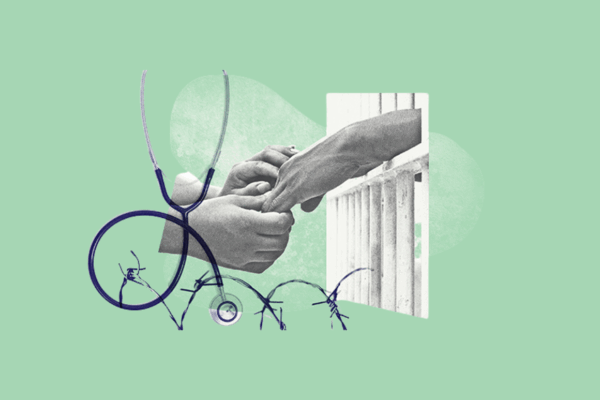Prisons & Jails
Through litigation, advocacy, and public education, we are dedicated to ensuring that Utah's prisons, jails, and other places of detention comply with the Constitution, domestic law, and international human rights principles.

We are dedicated to ensuring that Utah's prisons, jails, and other places of detention comply with the Constitution, domestic law, and international human rights principles, and to ending the policies that have given the United States the highest incarceration rate in the world. We promote a fair and effective criminal legal system in which incarceration is used only as a last resort, and its purpose is to prepare prisoners for release and productive, law-abiding life at the earliest possible time. Through litigation, advocacy, and public education, we work to ensure that conditions of confinement are consistent with health, safety, and human dignity and that prisoners retain all rights of free persons that are not inconsistent with incarceration. Achieving these goals will result in a criminal legal system that respects individual rights and increases public safety for everyone, at greatly reduced fiscal cost.
Increasing Public Accountability and Transparency of Jails, Prisons, and Other Places of Detention
Because places of detention are inherently closed environments housing the unpopular and the politically powerless, external oversight is critical to guard against mistreatment and abuse. The increasing privatization of detention, which creates financial incentives for both increased incarceration and harsher conditions of confinement, has made public accountability even more important.
Ending Cruel, Inhuman, and Degrading Conditions of Confinement
Far too many prisoners are held in conditions that daily threaten their health, safety, and human dignity. Denial of adequate medical and mental health care, basic sanitation, and protection from physical and sexual assault are all too common.
Expanding Prisoners’ Freedom of Religion, Expression, and Association
Prisoners’ rights to read, write, speak, practice their religion, and communicate with the outside world are often curtailed far beyond what is necessary for institutional security. Not only are these activities central to the ability of prisoners to retain their humanity, they also contribute to the flow of information between prisons and the outside world and thus provide a vital form of oversight of these closed institutions.
The Latest

Advocates Launch “No Federal Funding for Homeless Detention Camps” Campaign

Immigrants' & Refugee Rights: If You Have Been Arrested or Detained

Aaron Welcher, Director of Communications on 287(g) agreements in Utah County
Cases, Campaigns & Legislation
Amicus Barrani v. Salt Lake City
Stay Informed
Sign up to be the first to hear about how to take action.
By completing this form, I agree to receive occasional emails per the terms of the ACLU’s privacy statement.
By completing this form, I agree to receive occasional emails per the terms of the ACLU’s privacy statement.
